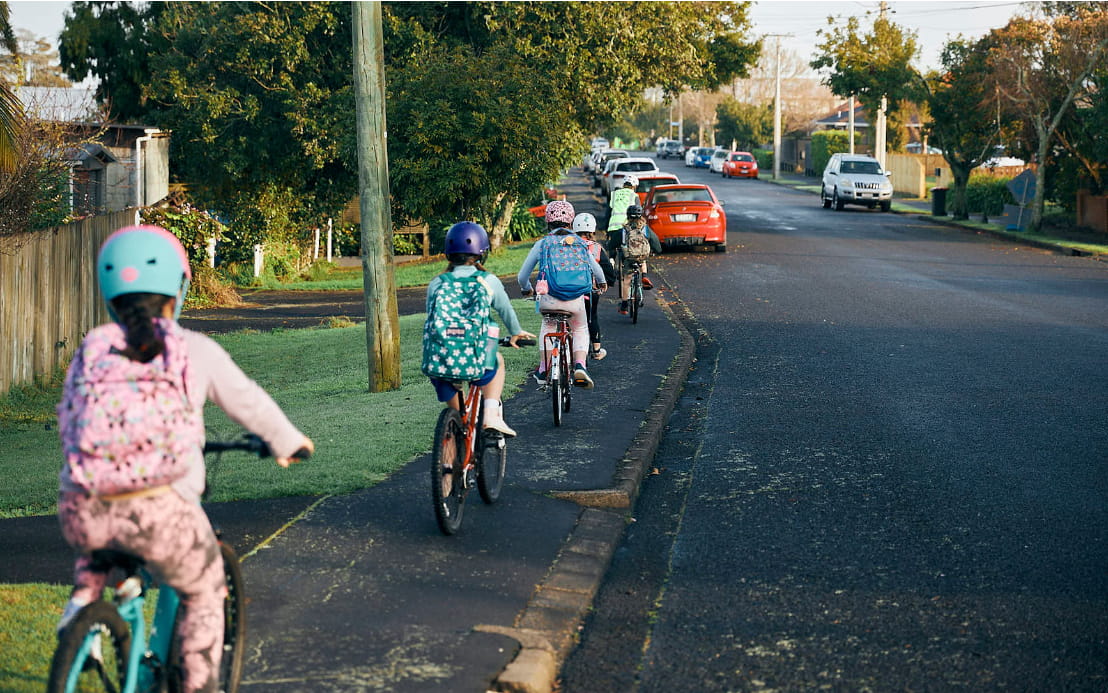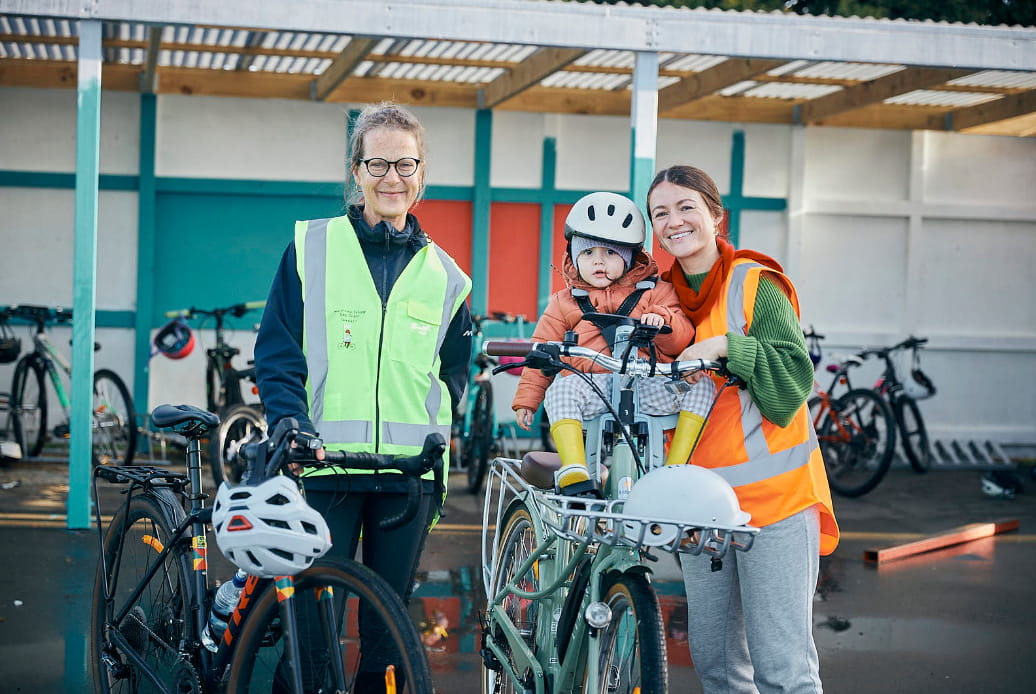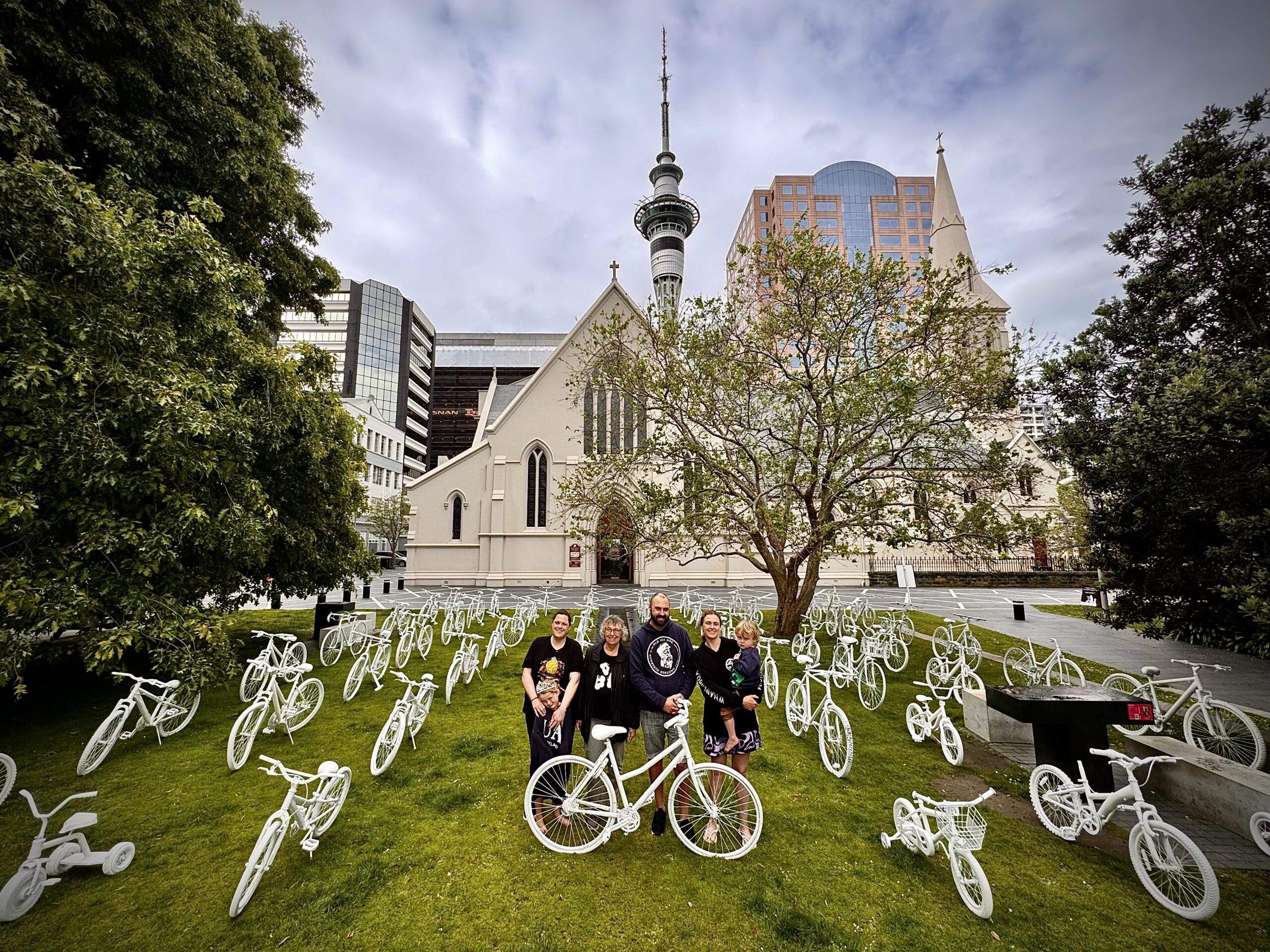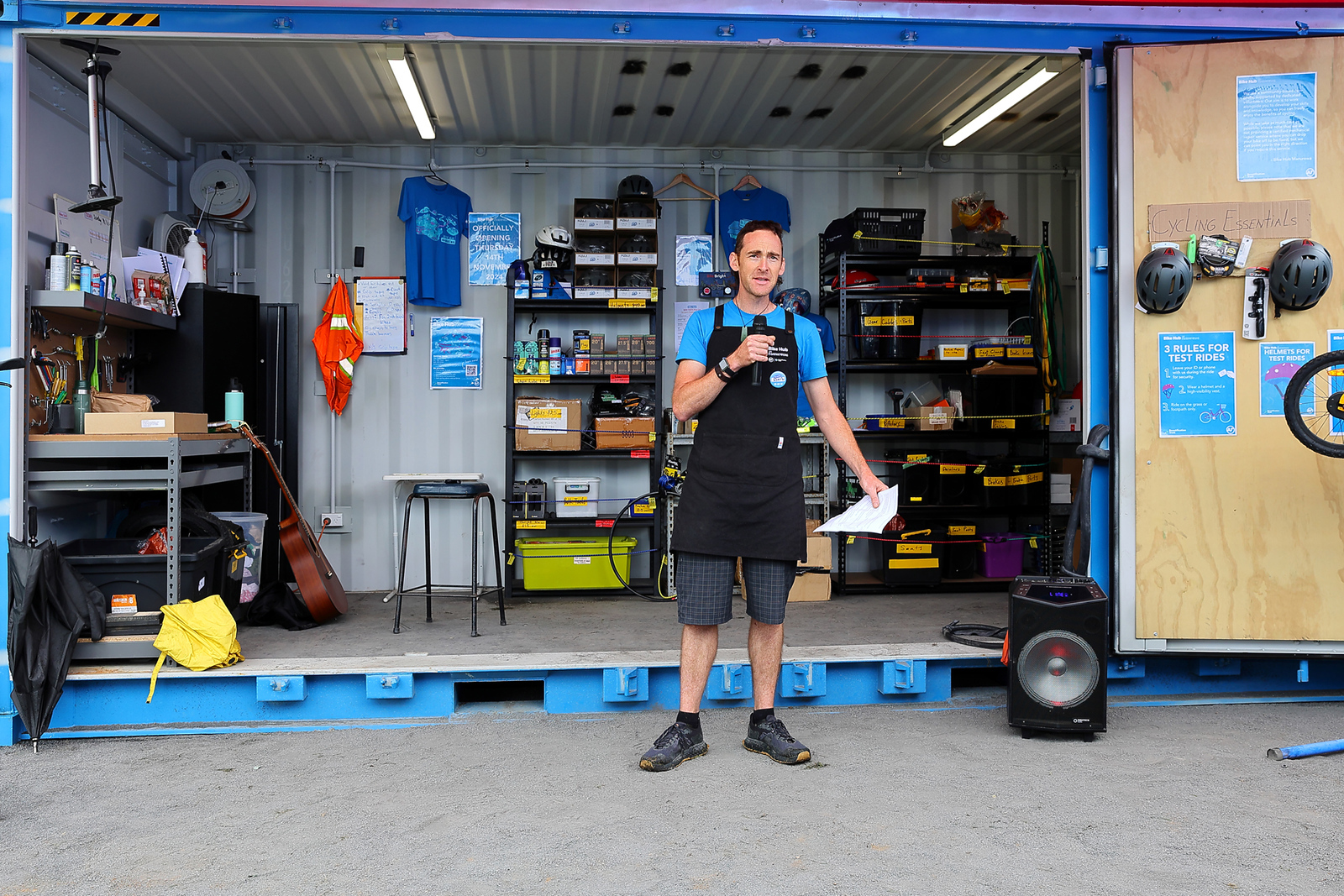Photo credit: Matt Crawford/Auckland Transport.
My bike train fascination started when my next door neighbour sent me a link to an article about a bike train at Point Chev Primary School. We both have preschoolers heading to school next year. My neighbour knows I work for Bike Auckland, and wanted to know if our future school had a bike train. It doesn’t, and we decided there and then we wanted to start one.
What’s a bike train, I hear you ask. If you’ve heard of a walking school bus, you’ll get the idea. With adult supervision at front and tail, the bike train winds through the neighbourhood, picking up children and travelling safely together to school.
I was eager to learn more. How does a bike train work? Are they run by schools? What is involved for the parent volunteers? When a bike train launch event was announced for Waterview Primary, I made up my mind to be there, early start or no.
The bike train is a concept that immediately appeals to me. I recently read Crank’s research with 181 Auckland primary school kids. It showed just how much kids love active transport, and how vastly they prefer it over travelling by car. I firmly believe that getting about by bike or scooter at primary age is setting up healthy habits that will last kids a lifetime. The Crank research points out that it also gives kids a constructive way of acting on their climate concerns, which the research found to be front of mind.
But despite all these benefits, car-packed roads restrict children’s freedom to ride. Children’s “home range” is estimated to have shrunk by 90%. Could a bike train be a way of letting kids enjoy active transport without risking their lives in traffic?
With these questions in mind, I rode into Waterview’s Heron Park at 7.30am on a damp August morning. After watching herons take off and dogs enjoying their morning walk, kids and parents finally started to arrive. Our guides soon followed, both called Emma and both bright-eyed and cheerful for the big day. The Emmas are Waterview locals.

There’s an air of excitement among the adults, who include, as well as parents and guides, others like me who have come to observe and to celebrate the launch. Among them is Albert-Eden local board rep Christina Robertson and Councillor Julie Fairey, as well as a helper from Auckland Council.
The parents seem delighted that their kids can ride to school without the parent themselves needing to be present. There are comments along the lines of “she wants to go by herself and she would probably be okay, but there is that road crossing…” Being at a stage where I can’t even imagine letting my kid ride up the road without me, I get it. The kids seem excited too, and happy they are part of the launch. All of them look confident on their bike or scooter.
Expecting a casual start, the well-organised and clear leadership impressed me. These guides were here because they were genuinely good at this sort of thing. Neither has children at Waterview Primary – but both were very comfortable stepping in and getting to know the bike train kids. I would have felt comfortable leaving my child with them.


Emma McInnes took charge with a friendly and clear introduction to the five or six kids present. They gave out high-vis vests in a range of colours for the kids. With a reassuring focus on the children, adult onlookers were cheerfully ignored other than a final instruction from Emma that adults were, of course, expected to stay behind the bike train.
We’re off. Following in the train’s wake, I watch the two Emmas marshall their charges through careful road crossings and along suburban footpaths. I see the kids learning road awareness as they go. Before long, we see a huddle of new bike train recruits waiting on a corner to join us. We pause as the guides instruct the new arrivals, then continue. With more stops like this, the train’s numbers swell to around fifteen kids by the end. I’m glad to see all of them are responsive to the Emmas’ guidance – our guides have built good rapport with them.
A block or so before the school, the kids call out cheerfully to a classmate whose parent is bundling her into a booster seat in a large vehicle – presumably to follow us to the school gate. I hope seeing friends on the bike train will persuade this family to join in before long.
And then we are at the school and the kids zoom off in the blink of an eye to enjoy some wilder riding around the playground. There’s a cheerfully painted bike shed for them to park their bikes (if they can be persuaded to part with them). I can see from the glow on the kids’ faces that this is an experience they’ll treasure, and one that goes beyond safely conveying them to school.
Spotting my opportunity to ask questions, I stick around for a coffee debrief with the Emmas. I learn that the sense of professionalism is no accident – we’ve been following a playbook developed from Emma McInnes’ experience in other suburbs. She tells me that no two schools are the same, and consultation is key. Here, the school invited parents to express their interest in the bike train. The 20 or so families who did so are in a WhatsApp group where most communication happens. Some schools will need funded models with external people like herself coming to guide the bike train, while other bike trains are led by parent volunteers. Some school communities want just morning bike trains. Others choose just one or two days a week to come together for the bike train.
“It’s not an all or nothing thing – people can dip their toe in, and gain confidence,” Emma explains to me.
With the schools too, there’s a spectrum of involvement. Some schools get thoroughly behind the initiative, and incentivise kids to participate, while others remain more or less uninvolved.

I confide my dream of starting a bike train at my daughter’s future primary. To my delight, the school is already on Emma’s radar. What’s more, the support of one or two committed parents can make all the difference in how easy it is to get it going.
I’m buoyed by the idea that our little family could help to change the way our community gets to school, and enthusiastic for our future bike train.
For today though, the focus is on Waterview, and a successful pilot of the bike train. Congratulations to the team who are making it happen, and congratulations to the families getting behind it. This is the start of something wonderful.
Bike train facts
- There are a number of schools with bike trains around Auckland, including Puketāpapa, Wesley, and Pt Chev Primary Schools.
- Bike trains can run twice daily or on any other schedule that works for the community.
- School communities contribute to planning the safe route the bike train will take.
- Bike train guides can be parent volunteers – usually a number of parents learn the skills and then follow a roster to share the commitment around.
- Safety is the number one priority and the guides follow best practice rules for safety around driveways and when crossing roads. Kids go through dummy runs of the safety practices too.
- Some bike trains record rides using an app in order to reward kids for the number of rides they do.
Those who want to know more about bike trains should get in touch with Bike Auckland on info@bikeauckland.org.nz.




